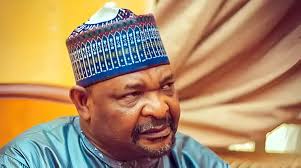After the Senate’s decision to suspend Senator Abdul Ningi for three months, a storm of controversy erupted regarding alleged issues of budget padding and the uneven allocation of funds in the 2024 national budget. Senator Ningi, who represents Bauchi Central and is a member of the People’s Democratic Party (PDP), had accused the government of inflating the budget, particularly in the allocation of funds for constituency projects. This accusation opened a larger debate about the fairness of the distribution of funds for constituency development across the country.
Senator Ningi resigned as the chairman of the Northern Senators’ Forum following his suspension, which was the result of his failure to substantiate his claims about budget padding. He was also barred from entering the National Assembly during the suspension period. The decision came after intense discussions and accusations from his fellow Senators, particularly in regard to his handling of the 2024 budget.
The controversy began when Senator Ningi, in his defense of his allegations about budget padding, revealed discrepancies in the distribution of funds for constituency projects. According to Ningi, some Senatorial districts were allocated as much as N120 billion for constituency projects, while his own district, Bauchi Central, received only N2 billion. This disparity raised questions about how funds were distributed among the different districts and whether certain areas were being favored over others.
Ningi also spoke about what he described as “humongous anomalies” in the 2024 budget. He claimed that there were repetitive allocations of funds, with billions of naira supposedly unaccounted for in the total budget. In his view, there was about N3.7 trillion still unallocated from the total N28.7 trillion passed by the National Assembly and signed by the President. He further explained that the majority of what had been read in the media, particularly in an interview with BBC Hausa, was true, but he clarified that he had never said two separate budgets were being run. Rather, he claimed that only N25 trillion of the total budget could be traced to actual projects and locations.
Senator Jarigbe Agom Jarigbe, representing Cross River North, also weighed in on the discussion. He supported Ningi’s claims about the uneven distribution of budget allocations, noting that some senators received large sums, while others, like him, got little or no funds for constituency development. He specifically pointed out that ranking senators had been allocated N500 million each, while others had only been allocated N75 million. This disparity, he suggested, was not only unfair but reflected systemic issues with how the budget was managed.
Despite the serious nature of these allegations, the Senate’s focus remained on holding Senator Ningi accountable for his accusations. The Senate’s committee on appropriation, chaired by Senator Solomon Adeola, moved for disciplinary action against Ningi, accusing him of making unfounded claims about budget padding. Senator Adeola, who represents Ogun West, argued that the budget had not included detailed allocations for various government agencies such as the National Assembly, the Independent National Electoral Commission (INEC), the Universal Basic Education Commission (UBEC), and the Niger Delta Development Commission (NDDC), as had been the standard practice in previous years. He insisted that Ningi’s statement about N3.7 trillion being unaccounted for was misleading and incorrect.
Other Senators, including Sani Musa, Sadiq Umar, and Abba Moro, also criticized Ningi for tarnishing the image of the Senate by making baseless allegations. They argued that Ningi’s actions had not only hurt the reputation of the Senate but had also breached the privileges of other members. These Senators insisted that he should face appropriate sanctions for his actions.
On the other hand, some Senators, such as Ali Ndume and Adamu Aliero, called for a more lenient approach. They suggested that Ningi be allowed to apologize for his actions, which they believed would bring the matter to a close without further escalating the conflict. However, the Leader of the Senate, Senator Opeyemi Bamidele, disagreed with this approach. He argued that Ningi’s actions had been deliberately disruptive, and he warned that allowing Ningi to get away with this behavior would set a dangerous precedent. According to Bamidele, Ningi had made false accusations with the intention of destabilizing the Senate and undermining its leadership, particularly that of the Senate President, Godswill Akpabio.
Bamidele’s comments revealed deeper political tensions within the Senate, as he alluded to unresolved conflicts from the June 2023 Senate President election. He suggested that some senators who had lost the election were still unhappy with the outcome and might be attempting to undermine Akpabio’s leadership. Bamidele emphasized that Ningi’s actions were part of a deliberate effort to discredit Akpabio and create division within the Senate. He warned that Ningi’s claims were a part of a larger plot to weaken the Senate President and disrupt the stability of the Senate.
In light of these considerations, a motion was put forward by Senator Jimoh Ibrahim, proposing a one-year suspension for Senator Ningi. The motion also suggested that Senator Summaila Kawu, who had amplified Ningi’s allegations through the Northern Senators’ Forum, should issue a public apology and be reprimanded. However, after several amendments to the motion, the Senate decided to suspend Ningi for three months instead of a full year. The motion also included a cautionary note for Senator Kawu, who was warned against spreading falsehoods in the future.
When the Senate President, Godswill Akpabio, announced the decision, Senator Ningi stood up, gathered the documents he had brought to the chamber to support his claims, and walked out. Akpabio explained that Ningi’s suspension was based on the amendment made by Senator Garba Musa Maidoki, which was seconded by Senator Sani Musa. He clarified that Ningi’s suspension would last for three months, but he could be reinstated earlier if he offered a written apology for his actions.
The controversy surrounding Senator Ningi’s suspension highlights deeper issues within the Nigerian Senate, including concerns about fairness in the allocation of resources, the integrity of the budget process, and internal political rivalries. While Ningi’s suspension was a significant event, it also opened up a wider conversation about the transparency of the budgeting process and the need for reforms to ensure that funds are allocated equitably across the country. The incident has left many questioning the accountability of lawmakers and the overall health of the country’s political system. As the suspension period progresses, it remains to be seen whether Ningi’s claims about budget padding will lead to further investigations or reforms within the Senate.

